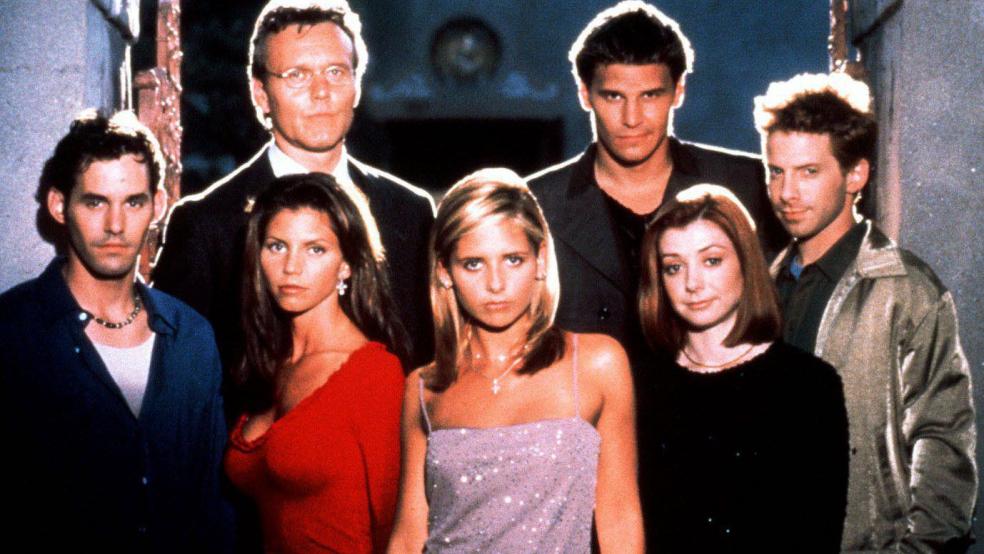As March draws to a close, Netflix has again followed its monthly tradition of announcing what will videos be coming to and leaving its streaming service in the following month. Subscribers typically read these announcements with a mix of trepidation and joy, looking to see which films and shows they should race to watch before they disappear while also looking forward to the new content that will soon be available.
But the reaction to this month’s announcement was a little more rambunctious than usual, driven by dismay that several beloved television shows that have long been a part of Netflix’s library, including Buffy the Vampire Slayer and The X-Files, would be leaving the stable.
Some of this reaction is specific to those shows. Buffy and The X-Files (along with Twin Peaks and the first eight or so seasons of The Simpsons) are in many ways the shows that created modern television. Beyond that, for many people, these are the shows that launched the “binge watching” trend that has almost become the default mode of television watching.
Related: The Netflix Library Is Shrinking Fast: Here’s Why It Doesn’t Matter
But the outcry over the latest shows leaving Netflix also reflects greater misgivings about what exactly Netflix is becoming. While originally launched as a sort of complete archive for film, where you could just as easily find an obscure cult film as the latest blockbuster, Netflix has increasingly made headlines (and won awards) for its original content. It’s been a long time since you could dependably find the summer’s biggest blockbusters on the service, but from House of Cards through Iron Fist, the service has continued to push its originals to the fore.
“Increasingly, our goal is to own more of our original programming to allow for greater creative and business control and to ensure global access to content,” the company said in a letter to shareholders more than a year ago.
By and large, this strategy has worked, even if it has allowed rivals like Hulu to gain a foothold by offering classic shows for people who want them.
So while Netflix is clearly still ramping up its original productions, its shrinking library of third-party shows and movies has become less and less of a benefit to subscribers. Netflix is steadily turning into a stand-alone premium television channel.
As a business model, that works well just as long as the company can keep turning out hits — even if some subscribers are disappointed they can no longer watch old favorites like Buffy, plenty of others will sign up to see the next Stranger Things or Jessica Jones. And since Netflix owns the shows it doesn’t have to worry about being asked to pay a much higher price to continue to carry the content.
But what happens if Netflix’s hitmakers run into a dry spell?
Consider the case of HBO (still the godfather of prestige TV) in 2009. The Sopranos and Deadwood were both gone, The Wire (always more respected than actually watched) had come to an end. Sex and the City was long gone. There were still minor hits like True Blood, but they weren’t the zeitgeist-driving powerhouses that their predecessors had been, and Game of Thrones was still two years away.
Related: Hollywood’s Critical Problem Will Only Get Worse in 2017
Subscriber levels dipped for a bit (as did Emmy nominations), but HBO survived its dark period, helped by a variety of factors. Among other things, it still offered the rebroadcast of fairly recent box office releases, and a decent archive of classics to lure or keep subscribers. These features remain present on HBO’s popular streaming app. Beyond that, HBO had its marriage to traditional cable packages. Many people kept their HBO subscription out of habit, and for those that didn’t re-adding it to your cable package was simple.
Netflix is currently sitting pretty, so the fear of a lull may be unfounded. House of Cards and Orange Is the New Black both have new seasons coming in the summer. Stranger Things, the giant hit from last summer, is also coming back to turn us upside down again. Despite the lackluster reception for Iron Fist, there is still a great deal of excitement for Marvel’s The Defenders. But Cards and Orange are both running out of steam (and it’s debatable whether the current season of Cards can keep up with the insanity in real-life Washington). Stranger Things could have a sophomore slump — you never know — and Marvel’s Netflix division could continue its downturn. Netflix’s internal numbers about subscriber preferences may make it easier to steer clear of flops, but the company’s big bet on data-driven original programming still can’t guarantee results time after time after time.
Could a Netflix without a substantial archive survive a two-year slump the way HBO did? Will people continue to subscribe if or when the original content no longer carries critical buzz?
It’s a risk that Netflix seems increasingly willing to take.





